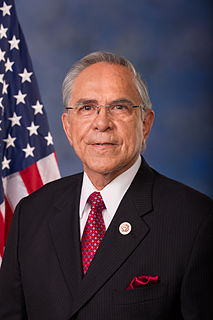A Quote by Heather Wilson
Many of our young people spend four years getting very expensive college degrees. But our universities fail them and the nation if they continue to graduate students with expertise in biochemistry, mathematics or history without teaching them to think about what problems are important and why.
Related Quotes
Like many others, I have deep misgivings about the state of education in the United States. Too many of our students fail to graduate from high school with the basic skills they will need to succeed in the 21st Century economy, much less prepared for the rigors of college and career. Although our top universities continue to rank among the best in the world, too few American students are pursuing degrees in science and technology. Compounding this problem is our failure to provide sufficient training for those already in the workforce.
The obsessive focus on a college degree has served neither taxpayers nor students well. Only 35 percent of students starting a four-year degree program will graduate within four years, and less than 60 percent will graduate within six years. Students who haven't graduated within six years probably never will.
Why do we focus so intensely on our problems? What draws us to them? Why are they so attractive? They have the magnet power of love: somehow we desire our problems; we are in love with them much as we want to get rid of them . . . Problems sustain us -- maybe that's why they don't go away. What would a life be without them? Completely tranquilized and loveless . . . There is a secret love hiding in each problem
It's difficult to get a job and people stay in school longer because they're employed as teaching assistants or instructors by their schools, by their schools where they're graduate students, and that does become exploitative eventually because they're very cheap labor and there's a way in which in it's not in the institution's interest to give them a degree if they can continue to employ them, I don't think anybody thinks that way, but effectively that's the way the system is starting to work.
Millions of young Americans have graduated from college during the Obama presidency, ready to use their gifts and get moving in life. Half of them can't find the work they studied for, or any work at all. So here's the question: Without a change in leadership, why would the next four years be any different from the last four years?

































